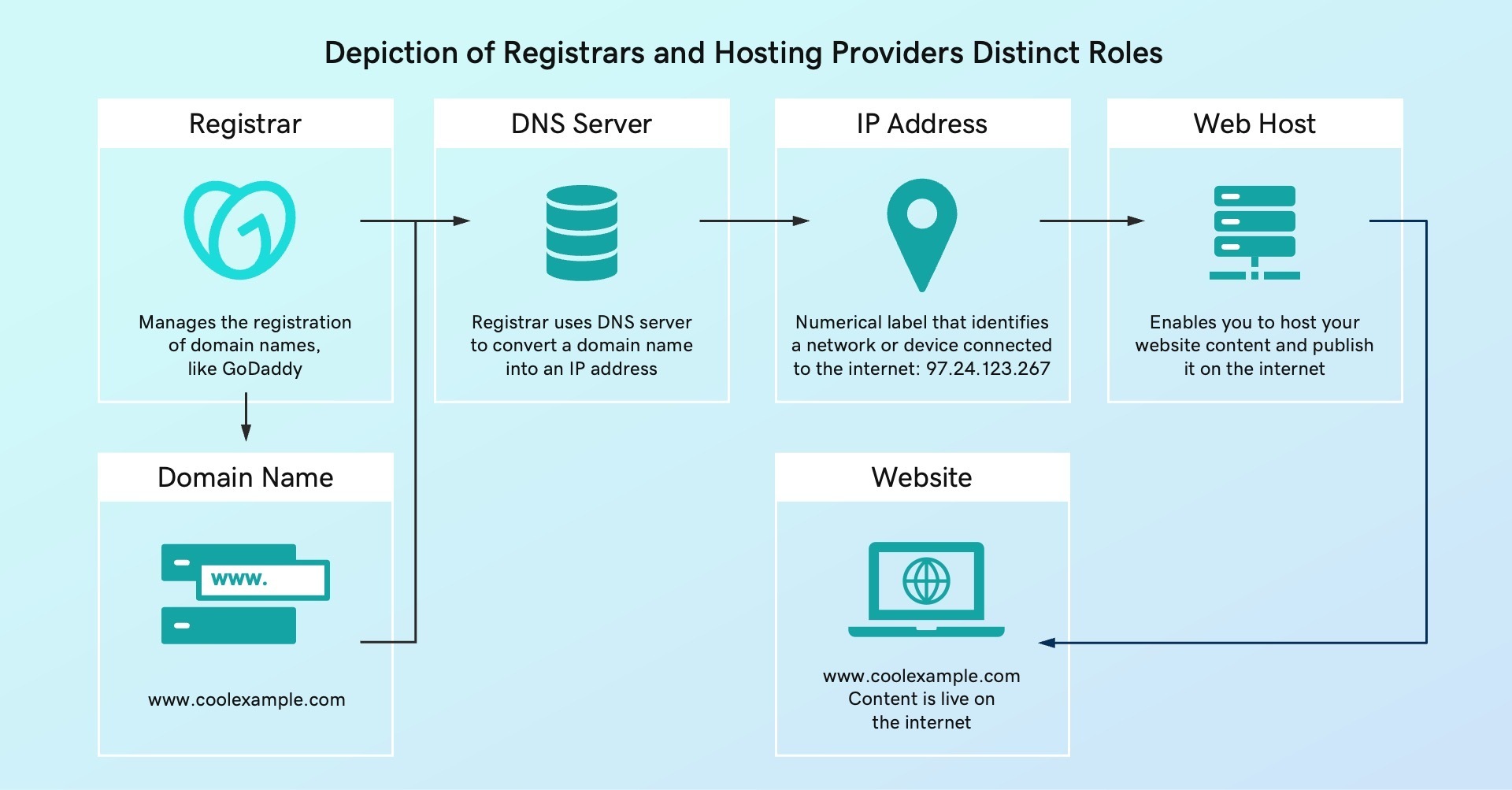Web Hosting vs Domain Registrar: What’s the Difference?
When it comes to creating a website, many people get confused about the terms “web hosting” and “domain registrar.” Both are essential components of getting your website online, but they serve different purposes. In this article, we’ll break down the differences between web hosting and domain registrars, so you can make an informed decision for your website.
What is Web Hosting?
Web hosting is a service that allows individuals and organizations to make their websites accessible via the World Wide Web. In simple terms, it’s like renting space on a server where your website’s files are stored. When people type in your domain name, the web hosting server delivers those files to their browsers, allowing them to view your website.
Web hosting providers offer various types of hosting plans, including shared hosting, VPS hosting, dedicated hosting, and cloud hosting. Each type of hosting has its own set of pros and cons, depending on the size and complexity of your website.
What is a Domain Registrar?
A domain registrar is a company that allows you to register and purchase domain names for your website. Domain names are the unique addresses that people type into their browsers to access your website. Without a domain name, users would have to remember a series of numbers (IP addresses) to reach your site.
Domain registrars make it easy for individuals and businesses to secure the rights to a particular domain name. They also provide tools for managing your domain name, such as updating contact information, renewing registration, and transferring ownership.
Key Differences Between Web Hosting and Domain Registrar
Now that we understand the basic definitions of web hosting and domain registrars, let’s explore some key differences:
- Function: Web hosting stores your website’s files and delivers them to users when they visit your site. A domain registrar manages your website’s address (domain name) and directs users to the correct server.
- Cost: Web hosting prices vary depending on the type of hosting plan you choose and the features included. Domain registration fees are typically an annual expense, ranging from a few dollars to hundreds of dollars, depending on the domain extension.
- Ownership: You own your website’s content and files when you use a web hosting service. In contrast, you lease the rights to a domain name from a domain registrar, which you must renew periodically to maintain ownership.
- Technical Support: Web hosting providers offer technical support to help you manage server-related issues, such as downtime or performance problems. Domain registrars provide support for domain name management tasks, like updating name servers or renewing registration.
Which One Do You Need for Your Website?
Deciding whether you need web hosting or a domain registrar (or both) depends on your specific website needs. If you’re building a new website from scratch, you’ll need both services – a domain name to establish your website’s online address and web hosting to store and deliver your website’s files.
Consider your website’s size, traffic volume, budget, and technical skills when choosing a web hosting provider and domain registrar. It’s essential to select reputable companies that offer reliable services, excellent customer support, and competitive pricing.
Remember that web hosting and domain registration are separate services, so you can choose different providers for each if that better suits your needs. Just be sure to update your domain’s name servers to point to your web hosting server after purchasing both services.
In summary, web hosting and domain registrars are both critical components of getting your website online. Understanding the differences between the two will help you make informed decisions when setting up and managing your website.
